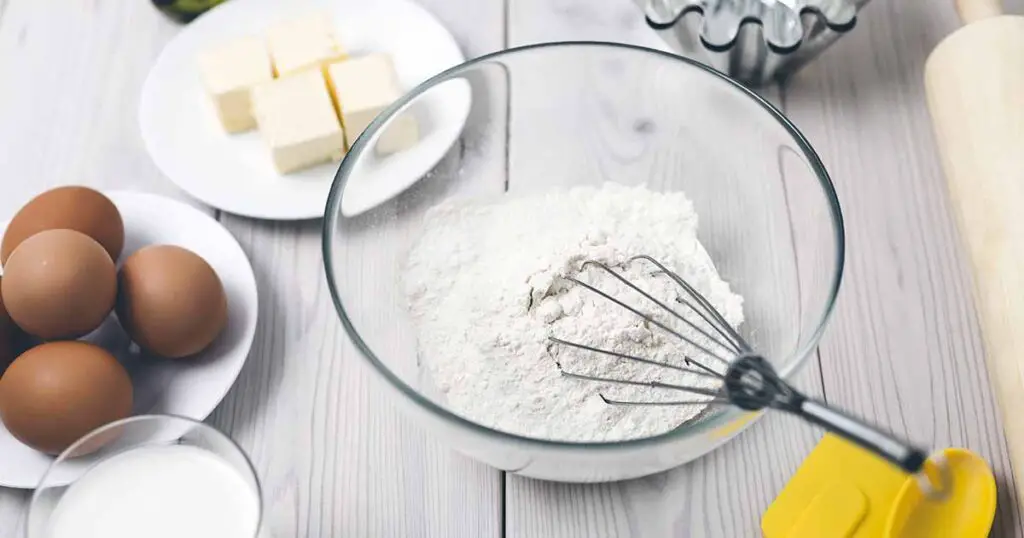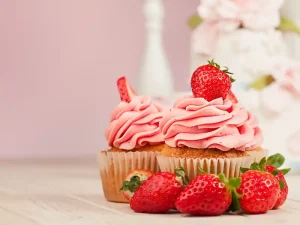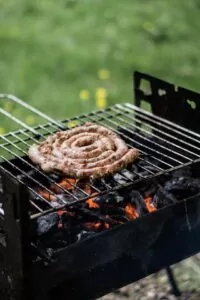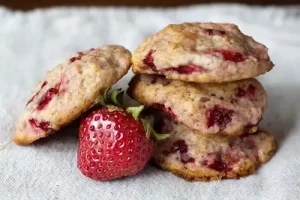Who doesn’t love a good cake? But making a deliciously soft and moreish cake is a little bit more complicated than it looks.
If you are a budding baker or you want to take your skills up a notch and have no idea where you are going wrong, then you need to go back to basics, forget everything you think you know, and start afresh.

Table of Contents
Toggle7 Baking Tips And Tricks For Beginners
Find A Tutorial
Have a look on Youtube or Instagram to find some baking influencers and start with their most basic recipes.
Avoid skipping steps that you think you know or would do better and follow the instructions step by step.
This will allow you to see how the result is supposed to be and identify habits you might have eaten, causing issues with your baking.
Once you have your cake recipe down pat, practice other elements such as a raspberry cake filling, vanilla buttercream, or fondant figures.
Again follow the same strategy. Make sure to follow your guides step by step for the best results time and time again.
Invest in High-Quality Bakeware
It is one of the best baking tips and tricks for beginners. You are only as good as the tools you use. If you are using inadequate bakeware or the wrong sizes of tins to spoons, bowls, etc., you will notice this will dramatically impact your result.
Try to avoid making it “fit” and invest in high-quality tools and accessories to help you improve your finish and elevate your baking creations.
Not only will the right tools make your job easier, but they can enhance the process leading to more uniform and consistent results.
Measure
We have all seen the means about how certain ingredients you measure with your soul, but in all honesty, you need to be exact when it comes to baking.
It is necessary to weigh your ingredients to measure them accurately. This usually pertains to flour, an essential ingredient in baking, and is notoriously difficult to measure accurately when using volume measurements such as cups and tablespoons.
As a result, look for recipes in which the components are listed in grams rather than volume instead of weight.
Yes, you can do the conversion, but the odds are that if a recipe is written in weights to begin with, it will turn out better in the end.
Fresh Is Best
Sometimes when you are in a bind, it is easier to reach for the premixed ingredients or older ones you have had languishing in the cupboard.
If you want to kick your skills up a notch, the fresher your ingredients, the better. Fresh fruits are vital for a fruit flavor or even decorating naked cakes with fruit.
Fresh cinnamon should be your go-to for adding flavor to cakes and muffins, ensuring your cupboard ingredients are not older than six months.
Over Mixing
It gets increasingly solid and elastic when you mix, beat, or knead flour due to the gluten. Although that may be desirable in the case of pizza dough, it is not necessary in the case of pot pie dough.
The good news is that your recipe should provide you with some form of guideline as to how much, how long, and how intensely you should mix your dough; thus, follow the recipe and be aware of how over-mixing can harm gluten.
Calibrate Your Oven
Make sure that your oven is calibrated. The problem here is that the temperature in your oven may not be exactly what you set it to be when you turn it on.
If you put your oven to 300 degrees Fahrenheit, but it only heats up to 280 degrees Fahrenheit or even 350 degrees Fahrenheit, your dish will not turn out correctly.
Although repairing the oven may seem like a daunting task, the remedy can be as simple as purchasing a low-cost oven thermometer.
Preheat the oven to 350 degrees Fahrenheit and check the temperature with a thermometer.
If the temperature isn’t as it should be, you can adjust the controls and get to the right temperature to bake.
Choose Unsalted Butter
Unless otherwise stated, follow the recipe’s instructions to the letter when it comes to using butter. If the recipe does not indicate, unsalted butter should be used.
The addition of salt influences the flavor of the dough, but it also changes the way the gluten in the flour develop, which can affect the consistency of the dough and the texture.
Conclusion
Improving your baking skills can take a lot of time and practice, but the end results will be worth it.
If you are concerned about what you are doing wrong or why you are getting bad results, then following instructions and recipes to the letter and hacking different variables mentioned above can help you improve your end results.
I hope you loved reading my guide on “baking tips and tricks for beginners”, if so, please share it with other newbie bakers.











